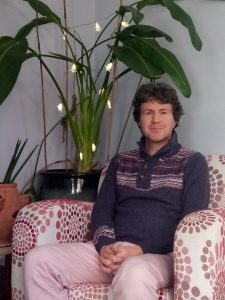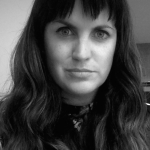Welcome to The Friday Prof-ile – a chance to get to know some of our recently appointed Professors and Associate Professors a little better. Every Friday, we’ll be asking a different person the same set of questions to get an insight into their life, work and what makes them tick.

Hywel Dix
This week, we’re chatting with Associate Professor in English, Hywel Dix…
- What are your research interests? What made you want to study these areas?
Since an early age I have been interested in the relationship between literature, culture and political change in contemporary Britain, and this is the main focus of my work. I have published on this topic very extensively, most notably in Postmodern Fiction and the Break-Up of Britain (2010), After Raymond Williams: Cultural Materialism and the Break-Up of Britain (Second Edition, 2013) and Multicultural Narratives: Traces and Perspectives, co-edited with Mustafa Kirca (2018). My broader research interests include modern and contemporary literature, critical cultural theory, authorial careers and autofiction. My monograph about literary careers entitled The Late-Career Novelist was published by Bloomsbury in 2017 and an edited collection of essays on Autofiction in English was published by Palgrave in 2018.
- What has been your career highlight to date?
Being invited to give the keynote address at the annual conference of France’s Société d’Etudes Anglaises Contemporaines, Paris Diderot University, in 2013. This might have been trumped by my invitation to give the keynote at a conference on Paulo Freire and Raymond Williams Centenary: Sparks of Transformation, held by UNICAMP, Sao Paulo in Brazil in 2021 – but this could only be given online due to the pandemic, so it was a bit less glamorous.
- What are you working on at the moment?
I recently completed a study entitled Compatriots or Competitors? Welsh, Scottish, English and Northern Irish Writing and Brexit in Comparative Contexts for publication this year. I am currently working on a project about autofiction and cultural memory.
- If you weren’t an academic, what would you be doing?
Before working at Bournemouth University I was a Development Officer at Wales Millennium Centre, the largest theatre and arts centre in Britain outside London, and if I were not an academic I would probably still be working in arts development in some capacity.
- What do you do to unwind?
The 3 Rs: reading, writing and running. A number of BU colleagues sponsored me in the London Marathon in 2018.
- What’s the best thing about Bournemouth?
Before I was interviewed at the university, I had never been to Bournemouth in my life and was as guilty as anyone of holding the stereotyped view of it as a place of retirement. The university has really helped change that image and made the population here much more diverse.
- If you could pick any superpower, what would it be and why?
I don’t really get the super hero genre. There’s no replacement for working hard. I wouldn’t mind being able to run a bit faster though.
- If you were stranded on a desert island, what one luxury item would you take with you?
My collection of football memorabilia of the past 100 years or so – but it might need dust covers.
- What advice would you give to your younger self?
I was very serious and introverted when I was younger and would probably say: lighten up.
 The Friday Prof-ile: Sam Goodman
The Friday Prof-ile: Sam Goodman The Friday Prof-ile: Mel Hughes
The Friday Prof-ile: Mel Hughes The Friday Prof-ile: Janice Denegri-Knott
The Friday Prof-ile: Janice Denegri-Knott










 Conversation article: London Marathon – how visually impaired people run
Conversation article: London Marathon – how visually impaired people run Horizon Europe News – December 2023
Horizon Europe News – December 2023